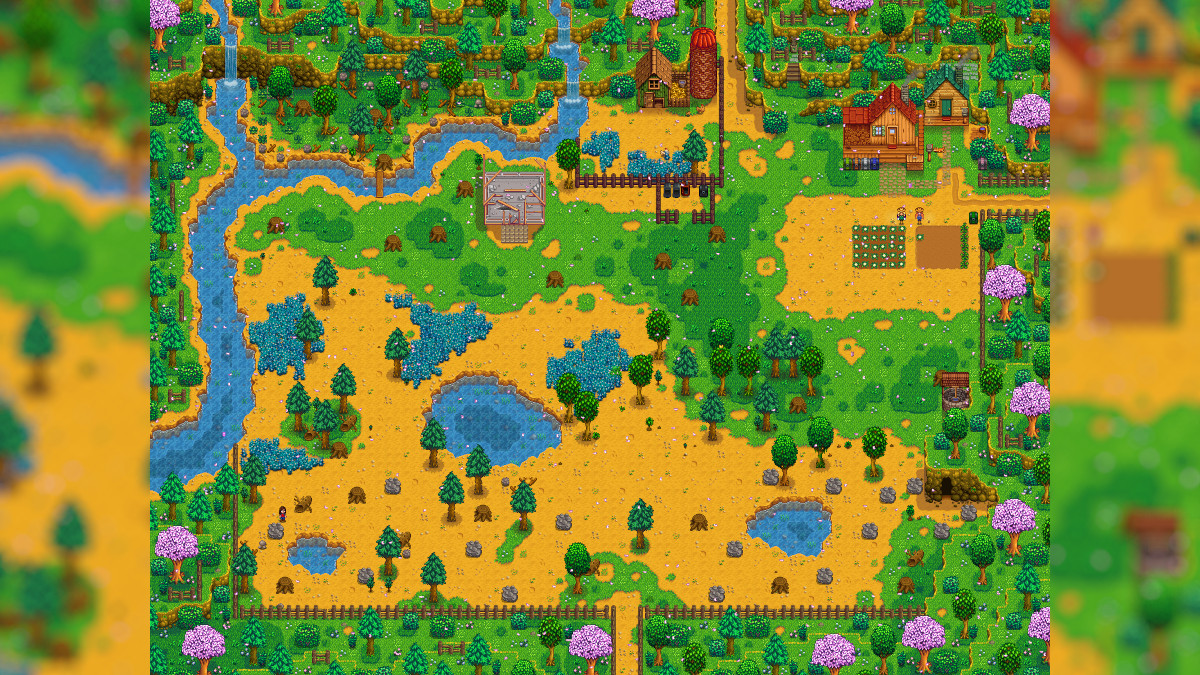Meadowlands Farm is the new farm type that was added to Stardew Valley with update 1.6, and that makes the update very exciting for fans.
In both the changelog for the patch and ConcernedApe’s teaser post on Twitter, it’s described as having “chewy blue grass which animals love.” Here’s some nuance on this farm type because Meadowlands farm is, pretty obviously, set up for animals to love and that means it might not be so suitable for other purposes.
It’s undoubtedly beautiful and the blue grass really is a nice and incredibly helpful touch, but there is a distinct lack of arable ground for crops so you’re going to struggle if you want to hit the ground running and build huge fields. If that’s how you want to play Stardew Valley, I wouldn’t recommend Meadowlands Farm as a farm choice.
Is Meadowlands farm good for crops?
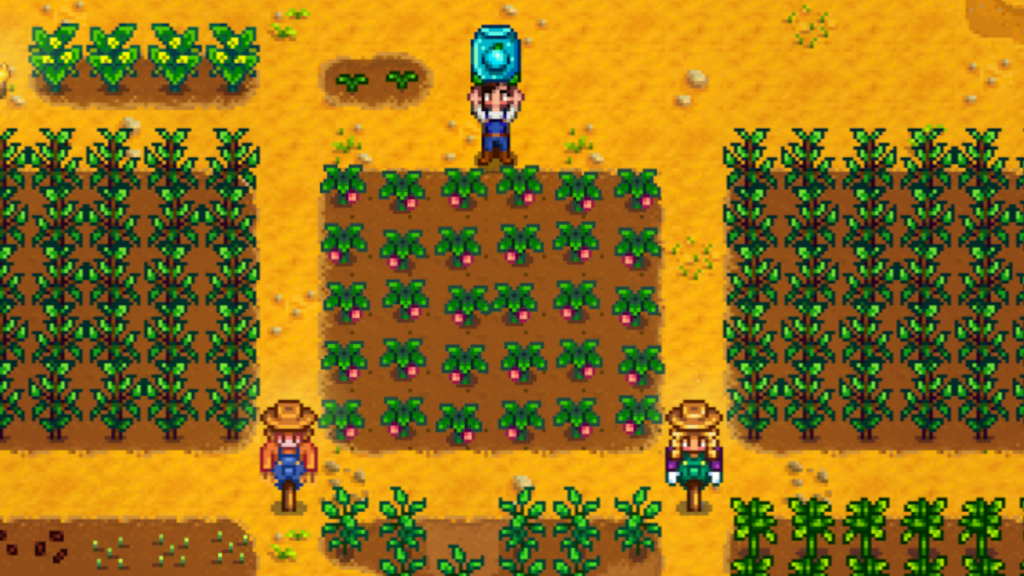
There are roughly 2,050 tillable tiles on the Meadowlands Farm map, but they’re not conducive to huge sprawling fields of crop. Instead, they’re separated by a huge swathe of grass that splits the map in two. There’s plenty of space for buildings, such as your Greenhouse or Barns, if you’re smart with your placement.
The largest part of tillable soil on the Meadowlands Farm map is located in the bottom left corner, and even this has a lot of spots of land that can’t be used for crops, as well as a lot of ponds and water sources. This might be good for refilling your watering can at the beginning of the game, but not so good if you’re hoping to get rich selling Blueberries in the Summer.
It is possible to grow a lot of crops, but for those who enjoy something aesthetically pleasing, there will be many issues when trying to plan out crops on a Meadowlands Farm map.
Is Meadowlands Farm good for animals?
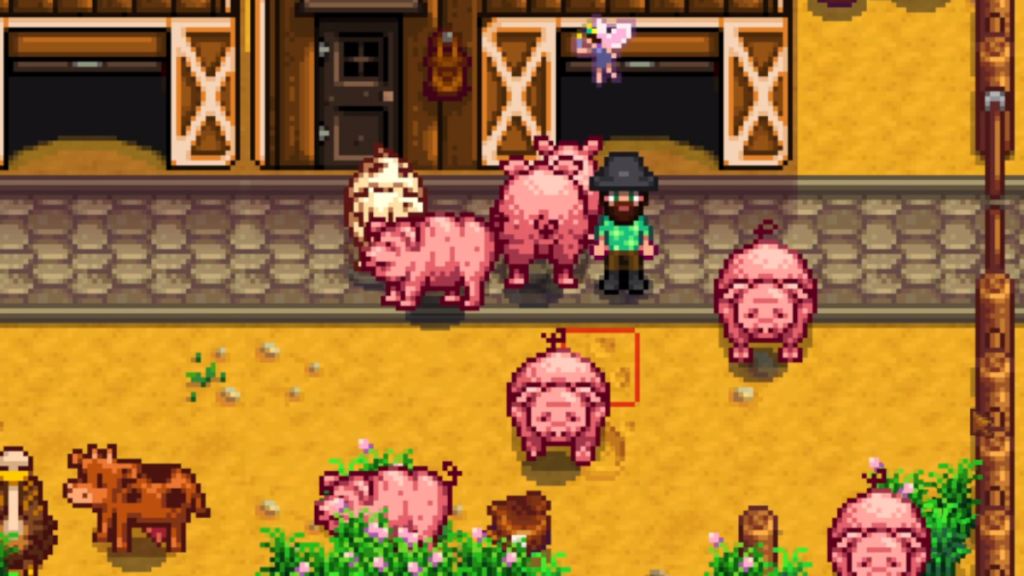
Undoubtedly, yes. Meadowlands Farm seems set up specifically for animal pastures and grazing. As I said, there’s a massive swathe of untillable soil that basically splits the map in two, but it’s the perfect spot for Barns and Coops, while still allowing plenty of space around them for grazing on that sweet blue grass.
One of the biggest benefits of starting a playthrough with Meadowlands Farm selected as your farm type is the fact that it comes with a Coop and two Chickens, so you don’t have to wait before you can begin producing Eggs. You don’t get to name these Chickens (mine are called Potatoes and Gravy), but this is definitely the biggest draw of this farm type. You can also fish in the rivers and larger Ponds, which is another way of making some extra money early in a playthrough.
What does Meadowlands blue grass do?
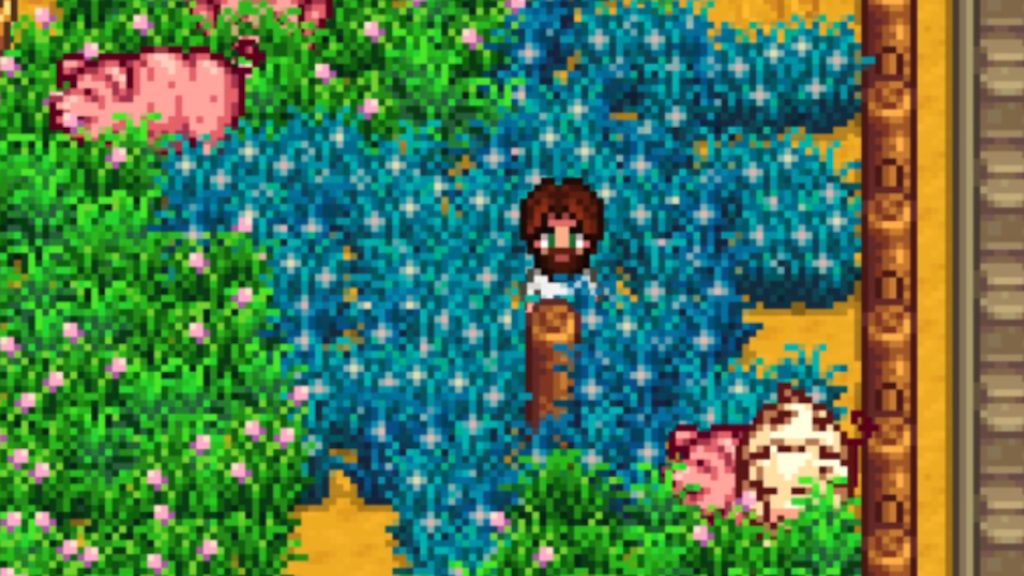
Meadowlands Farm blue grass, when eaten by animals on your farm, will increase their hearts twice as fast. This is good because, well, you need your animals to like you if you’re hoping to be a good and morally just farmer. Plus, more hearts mean more high-quality produce in half the time it would usually take.
High quality produce results in higher profits, so if you’re hoping to make all of your money on animal produce and the things you can make using them, then Meadowlands Farm is absolutely perfect.
That said, you can also buy Blue Grass Starters in Mr. Qi’s Walnut Room for 40 Qi Gems, so if you want to get the same benefits without having to give up your arable land, then you can do that. Blue grass is not limited to Meadowlands Farm, but it is the only farm that comes with it readily available. When mowed down with a Scythe, blue grass produces regular Hay.
Is Meadowlands Farm good for beginners?
Honestly, no. If you’re just getting into Stardew Valley, the easiest method to figure out for making money is through crops, so I would definitely class Meadowlands Farm as more of a ‘challenge farm’. It’s not quite on the same level as the Beach Farm, but it’s definitely not the farm I’d recommend if you’ve never played the game before.
That said, if you love a challenge, Meadowlands Farm might have its frustrations but once you’ve figured out how to utilize the space, you’ll have a lot of fun. To help you figure out if you’ll be able to make your home on this farm type, here’s a blank image of Meadowlands Farm obtained through Stardew Valley Planner.

All farm layouts in Stardew Valley
To date, there are eight different farm types that can be used to start a new save file. They all offer very different types of gameplay and each has unique aspects that are geared toward different skills:
- Standard Farm
- This map is ideal if you want to focus on earning money through crop growth, although still offers ample space for Barns and Coops. The Standard Farm has 3,427 tillable tiles, the most of any map, but doesn’t come with any additional perks.
- Riverland Farm
- Ideal for those who want to focus on Fishing as their main skill, as one of the features of this map is Bubble Spots which appear in the water, which increase the speed at which you can catch fish. This map has 1,578 tillable tiles. As of the 1.6 update, players who choose to begin a save file on Riverlands Farm will get a Fish Smoker as standard.
- Forest Farm
- This map is ideal for Foraging, as it comes with eight regrowing large Stumps that can be broken to get Hardwood, seasonal foragables that usually don’t appear inside a farm, and unique weeds that drop Mixed Seeds when cut down. This farm map has 1,413 tillable tiles.
- Hilltop Farm
- This map is ideal for people who want to focus on Mining, as it comes with it’s very own mini-quarry, where Stones, Ore nodes, and Geodes appear periodically. Although geared towards Mining, this farm still has 1,648 tillable tiles although the entire map is separated by a river directly down the middle, making layouts difficult.
- Wilderness Farm
- On this farm, monsters spawn after dark, making it the perfect farm if you want to boost your Combat level pretty quickly. This is also the only map that spawns Wilderness Golems, offering an extra chance to get multiple resources. There are 2,131 tillable tiles on this map.
- Four Corners Farm
- While this farm type offers 2,952 tillable tiles, they are split over four quadrants, each of which offers perks of other farm types:
- Top left – Forest Farm
- Top Right – Standard Farm
- Bottom Left – Riverland Farm (Smoker not included)
- Bottom Right – Hilltop Farm
- While this farm type offers 2,952 tillable tiles, they are split over four quadrants, each of which offers perks of other farm types:
- Beach Farm
- This is arguably the hardest farm type to work with. While it offers 2,700 tillable tiles, you can’t put sprinklers in the majority of the areas that are tillable. Only 202 tiles can play host to sprinklers, meaning that if you play with this map you’re going to have to get used to hand watering the majority of your crops. This is not a map I would ever recommend for new players. On the plus side, both Forest and Beach foragables can spawn on this map, and you’ll occasionally find washed-up Supply Crates along the shore.
- Meadowlands Farm
- I’ve gone over everything about this farm previously, but to recap: This farm has 2,050 tillable tiles and comes equipped with a Coop and two Chickens.
Which farm type is best for beginners in Stardew Valley?
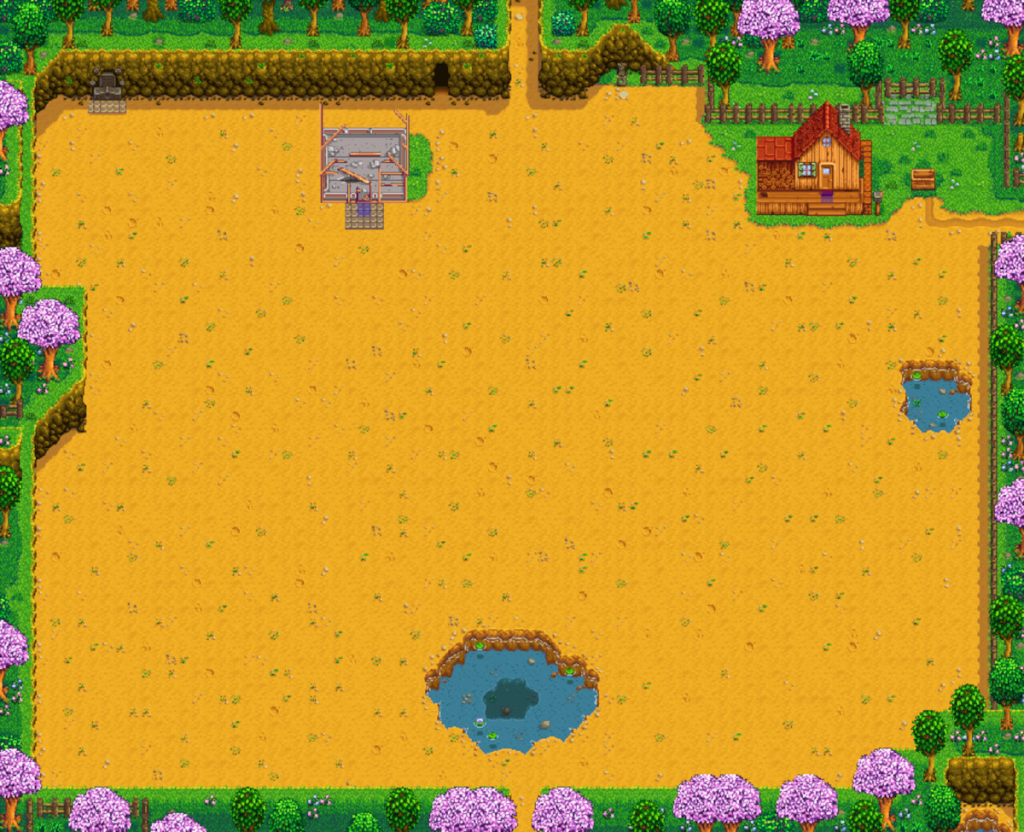
If you’re completely new to the game and want to ease yourself in gently, the only farm type I can truly recommend is the Standard Farm. While you’ll quickly adapt to whichever farm type you choose, the Standard Farm offers the most versatility and although it doesn’t come with any perks as standard, you can quickly build up a lot of income using all of the tillable tiles to grow whichever crops you like.
If you’re looking for a challenge, but don’t want to dive straight into Beach Farm level fury, then I’d recommend the Four Corners farm type, as this offers a variety of perks, but doesn’t lose out on farming space. Four Corners Farm is also excellent for Multiplayer, as the map is already split into quadrants, meaning that each player can have their own space to work with.
